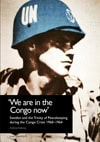
Artikeln har lagts till i varukorgen
Media-Tryck
Ny bok | Förlagsband
Läs mer om olika typer av bindningar här.
LEVERANS: Skickas inom 3-6 vardagar.
LEVERANS: Vi skickar din beställning med Postnords Varubrev eller DHL Servicepoint.
Du betalar alltid endast 49 kr i fraktavgift inom Sverige, oavsett vikt eller antal böcker vid beställning av antikvariska och nya böcker från oss! Läs mer
Det gick inte att ladda hämtningstillgänglighet
En julklapp? Beställ dina julklappsböcker i tid! Var vänlig och lägg märke till leveranstiden nedan. Och oavsett angiven leveranstid, på grund av osäkerhet i leveranser inför jul, rekommenderar vi att du lägger din beställning senast 10 december.
ENDAST 49 kr i fraktavgift inom Sverige, oavsett antal böcker!
Du betalar alltid endast 49 kr i fraktavgift inom Sverige, oavsett vikt eller antal böcker vid beställning av antikvariska och nya böcker från oss! Läs mer
ÅNGERRÄTT inom 14 dagar efter leverans.
RETUR & ÅNGERRÄTT: Du har alltid 14 dagars ångerrätt oavsett anledning, från den dagen du tar emot din leverans.
Skulle vår beskrivning av skicket på boken misstämma eller om vi på annat sätt gjort fel, står vi självfallet för returfrakten.
I KORTHET: En bok om Sveriges deltagande i FN-operationen i Kongo, och dess påverkan på svensk politik och samhälle.
Bindning: Förlagsband. År: Utg. 2012. Omfång: s. ISBN: 9789174733648. Språk: Engelska
Författare: Tullberg, Andreas
Titel: We are in the Congo now
Förlag: Media-Tryck
Genre: Historia
Artikelnr: 3415222
We are in the Congo now av Andreas Tullberg hittar du under genren Historia inom Historia & arkeologi i kategorin Humaniora. Hitta fler liknande böcker:
